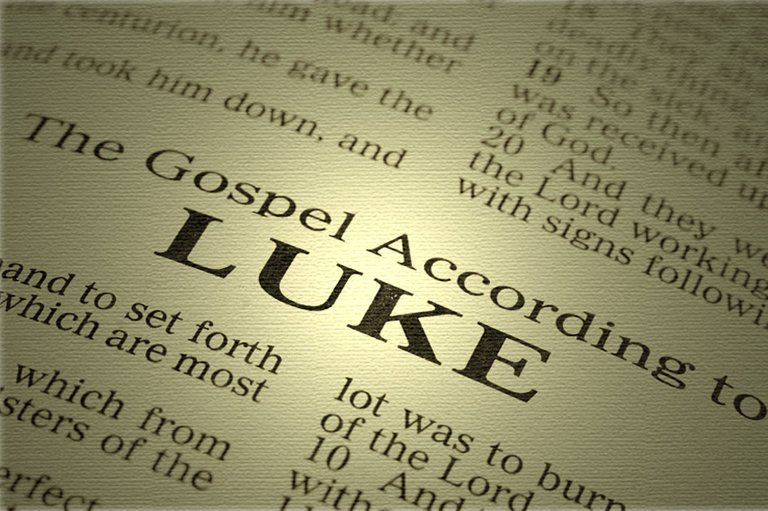We have talked about Hebrews is a legal argument for the defense of something and someone. Within the definition for faith we find the word “substance”. This mean: a setting or placing under; that which has foundation, is firm. The idea is that we can have confidence in what we are standing on because it has substance and is real. Notice how the writer connects the word substance with the word evidence. So not only is substance that which is real, but it also is factual.
I vacillate as to which of the 4 Gospels are my favorite. It often depends on the season I currently am. If pressed, I would probably pick the Book of Luke. Luke has been called the thinking man’s gospel. All of the Gospels and the Book of Acts are considered to be historical books. What makes Luke’s narrative so unique is:
• Along with Acts, it is the only work in the New Testament written by a Gentile.
• It is the only Gospel not written by an eye witness.
• It is arguably the most thorough account surrounding the birth and life of the Messiah.
Although he himself is not an eyewitness, he relies upon eyewitness accounts and public record to verify the events (Luke 1:2). This in turn makes Luke’s account all the more provocative, compelling and reassuring. There are those who believe that Luke’s account both in the Gospel and in Acts were to be entered into the court record as evidence for Paul’s defense before Caesar (acts 25:12). Therefore the narrative of events had to be
• Factual
• Historically accurate and verifiable
• Provable by a legal standard

All historians make mistakes. Oftentimes their information is incomplete or even biased. Luke becomes the rare exception to those foibles. Famed archaeologist, Sir William Ramsey, attempted to disprove the Lukan account. He went to the Middle East a skeptic, he returned a believer. He proclaimed Luke to be one of the world’s foremost historians. Luke is a trustworthy recorder of history.
The power of Luke’s Gospel is that It demonstrates that anyone seeking the truth can search it out. We know for certainty that the Gospel is not Jewish mythology or “cleverly devised fables”. (2 Peter 1:16) These things were not done in a corner (Acts 26:26). It has been attested to and affirmed. The God’s record has stood the test of time and the assault of critics.
What does the validity of Luke have to do with Hebrews and our faith? Notice that the Writer does not make his appeal based on apostolic authority. His appeal is based on the scriptures. The scriptures contain both prophecies and the recorded history of the Jewish people.
We are told that our faith has substance to it. Our faith is assured by the biblical record which is underscored by the archaeological and historical record. God’s work can be seen and verified throughout human history. Our faith and our hope rests on the Person of Christ, His work and His Word.
"Many have undertaken to draw up an account of the things that have been fulfilled among us, just as they were handed down to us by those who from the first were eyewitnesses and servants of the word. With this in mind, since I myself have carefully investigated everything from the beginning, I too decided to write an orderly account for you, most excellent Theophilus, so that you may know the certainty of the things you have been taught." Luke 1:1-4